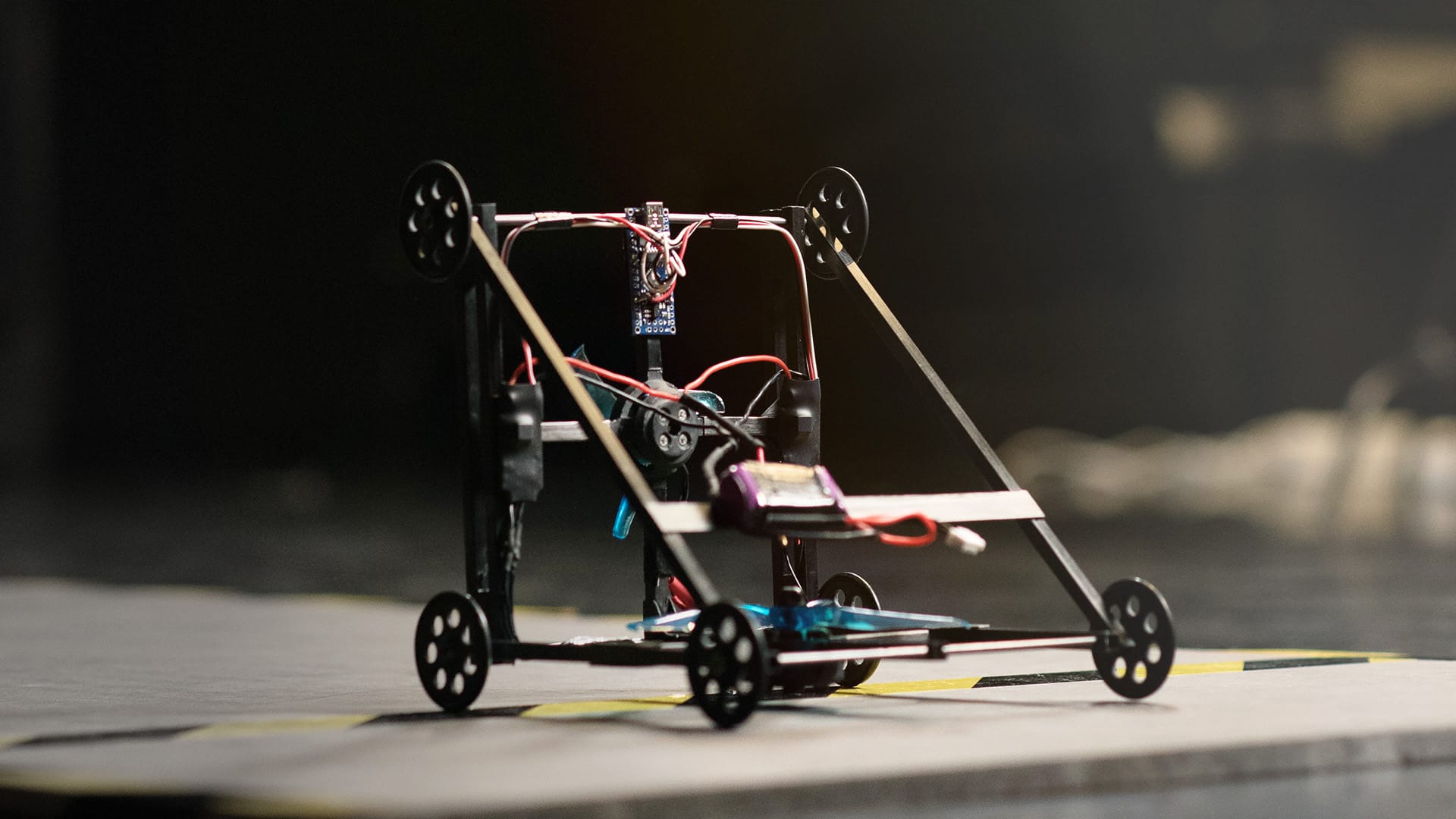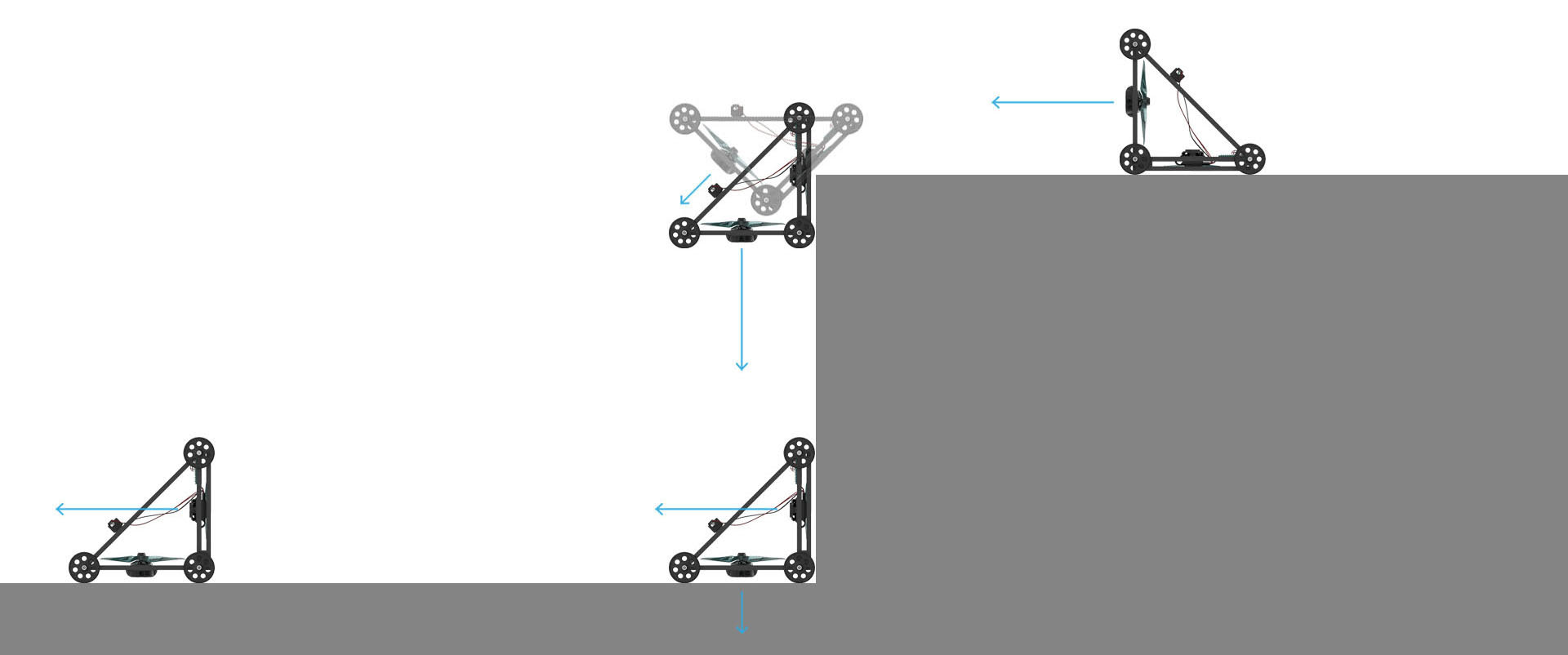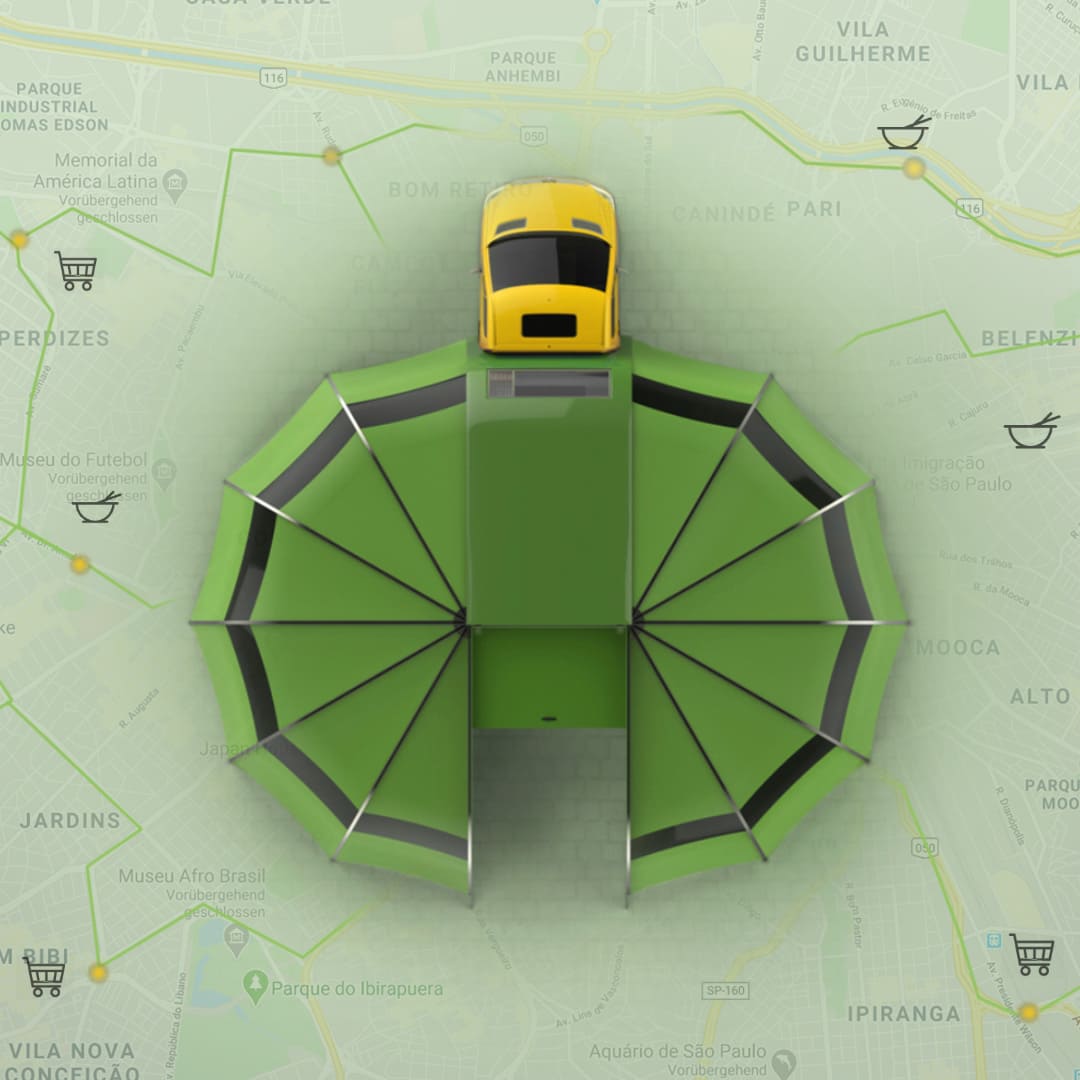Wall Climber
Summer semester 2019 – Technical design –
Prof. Tom Philipps – Victoria Lemke, Jonas Engelhardt
The robot is able to climb a 50 centimeter step using drive-controlled propellers. The chassis is made of carbon fiber and 3D printed parts.

The goal
The task was to develop a robot programmed with Arduino. The robot had to drive a distance of 150cm straight ahead, then climb a vertical step 50cm high and drive 150cm straight ahead again to a goal. The robot was not allowed to exceed the dimensions 20 x 20 x 20cm.
The idea
Our idea was to develop a robot that would climb the step using drive-controlled propellers. It should not require an additional drive, but only use the buoyancy force and the vacuum suction of the rotor blades used.
The solution
carbon fiber
3D-printed parts
drone motors
arduino control
186g weight
wall climbing robot
Development
Model making
We started with simple cardboard and foam models to get closer to the proportions. Then we programmed the two propellers so that we could control them with simple rotary controls to get a feeling for the strength. This meant that we had to quickly think of a more suitable material for the body, as the cardboard and foam constructions could not withstand the forces. We decided to use carbon fiber, because it is very strong and still has a low weight.
Aurduino code
After countless attempts using the rotary controls, we wrote the code so that the robot would move automatically. We rewrote this code very often until the data was exactly right so that our robot could overcome the step. A special challenge was that we always had to take into account the current battery charge of the robot. If we thought that the battery was too low, we increased the values, but when the battery was fully charged, the robot had far too much energy.
Technical structure
Technical views
front view
side view
top view
back view























